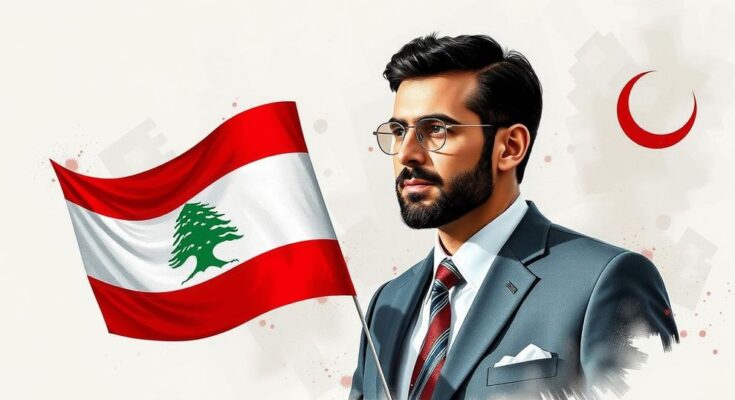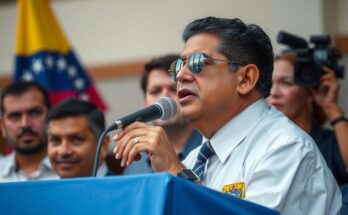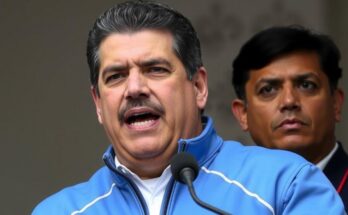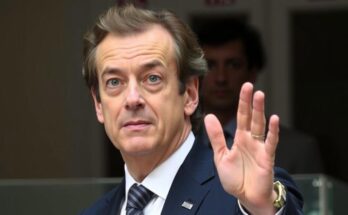Lebanon elected General Joseph Aoun as president, a decision influenced by Saudi Arabia’s diplomatic intervention, ending a two-year political impasse. Supported by both Hezbollah and Western powers, Aoun promised to regulate Hezbollah’s arms and foster national unity in a country facing deep sectarian divides and potential civil strife.
In a pivotal moment for Lebanon’s political landscape, the election of General Joseph Aoun as president was expedited by Saudi Arabia’s diplomatic efforts. With less than a day to spare before the parliamentary vote, Lebanon’s political elite, entwined in sectarian divides, struggled to unify around a candidate. However, following intense discussions facilitated by a Saudi delegation, Aoun emerged as the sole candidate supported by a bipartisan consensus, with effective endorsement from Hezbollah and its ally, the Amal party.
Upon his election, General Aoun, transitioning from military to presidential attire, took the oath of office with promises of establishing state control over weapons, particularly those held by Hezbollah. This move signifies a decisive shift in Lebanon’s governance, as Aoun aims to replace the legacy of former President Michel Aoun, whose term was marked by Iranian influence and the entrenchment of Hezbollah’s power within Lebanon’s political framework. With 99 lawmakers supporting his election and calls for disarmament, analysts noted that this event presents both an opportunity and a challenge for Lebanon.
Saudi Arabia’s active reengagement in Lebanese affairs, after years of perceived disengagement due to the Iranian influence through Hezbollah, outlines a renewed diplomatic strategy. The backing from both Saudi and Western diplomatic channels, including the U.S. and France, underlines a collective interest in stabilizing Lebanon’s political climate amid ongoing sectarian tensions. This development raises critical questions about the future of Hezbollah’s weapons and its role in Lebanese politics, particularly as the new president navigates between internal factions and external pressures.
Despite Hezbollah’s recent struggles, including losses in military engagements, their capacity to influence Lebanon’s political direction remains significant. Each aspect of the transition implicates deeper questions regarding sovereignty and the potential for sustained peace in Lebanon as the country confronts both domestic unrest and the complexities of foreign intervention in its political processes. General Aoun’s presidency is thus positioned as a crucial period for fostering national unity, rebuilding state legitimacy, and pursuing socio-economic reforms that resonate with the Lebanese populace.
Lebanon’s path forward remains fraught with challenges, but the election of General Joseph Aoun offers a glimmer of hope amidst a turbulent political environment, fostering optimism among citizens for a return to stability. Calls for humane leadership and a reinforced state underline a collective aspiration for accountability and socioeconomic progress within the nation.
The recent election of General Joseph Aoun as Lebanon’s president marks a significant development following a period of political deadlock lasting over two years. The country, characterized by a sectarian political system, had seen multiple failed attempts to elect a president, with intense rivalries among various political factions. Saudi Arabia’s renewed diplomatic engagement, combined with support from Western allies, has played a crucial role in facilitating this transition, hinting at a shift in regional power dynamics with potential implications for Hezbollah’s status in Lebanese governance and security arrangements.
The election of General Joseph Aoun heralds a transformative moment for Lebanon as it confronts longstanding sectarian divisions and seeks improved stability and governance. Supported by an unprecedented coalition, including Hezbollah, Aoun’s presidency symbolizes a potential shift away from external influence towards a more consolidated domestic leadership. As the nation grapples with the challenges ahead, the international community’s involvement remains pivotal in ensuring a balanced approach to Lebanon’s political and economic future.
Original Source: www.cnn.com




